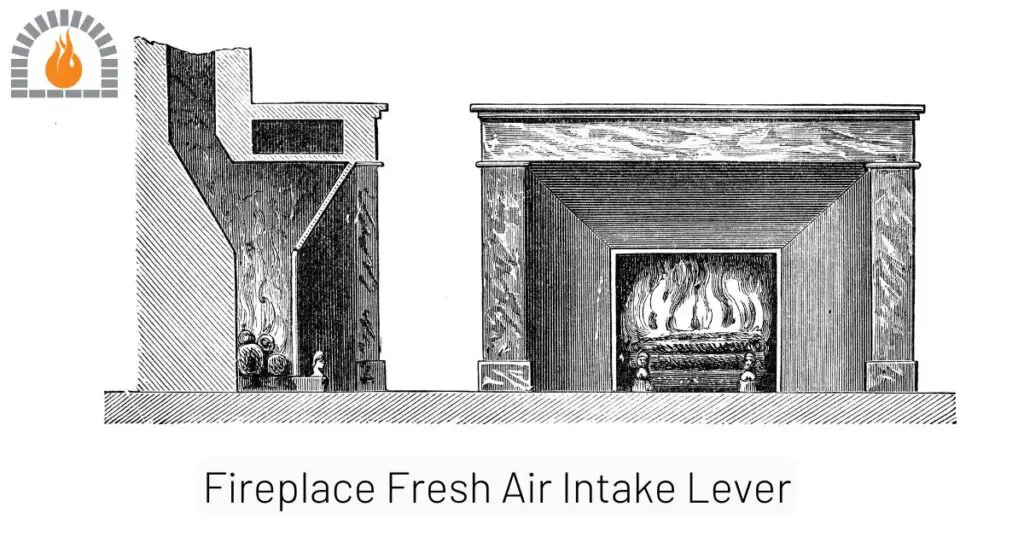You may feel frustrated and overwhelmed when your fireplace blower is not blowing air. When the warmth from the fire isn’t making it into your living space, it can quickly become an issue that needs to be addressed. So why is my fireplace blower not blowing air?
The most common reasons for a fireplace blower not blowing air are a lack of power, a faulty motor, a dirty or clogged air filter, obstructed air vents, dirty fan blades, a malfunctioning thermostat or switch, a damaged blower wheel or loose or damaged wiring.
Whether your blower is electric or gas-powered, learning how to troubleshoot this problem can help you get air temperature back into your home again.
In this blog post, we’ll explore some of the common causes for a fireplace blower not blowing air and potential solutions for each one.
Why is the Fireplace Blower not Blowing Air?
There are several reasons why fireplace blower not working, and some of the most common reasons and their fixes include:
1) The blower is not receiving power
If the blower is not receiving power, it will not be able blowing hot air. Check if the blower is plugged in properly and the outlet is working. If it is not, try plugging the blower into a different outlet.
2) Faulty blower motor
If the blower motor is faulty, it will not be able to function properly. You can check this by listening for any unusual sounds from the motor. If you suspect the motor is faulty, it may need to be replaced.
3) Dirty or Clogged Air Filter
A dirty or clogged air filter can prevent air from flowing properly and affect variable speed controller. Check the air filter and clean or replace it if necessary.
4) Obstructed Air Vents
Check them to ensure they are not obstructed by anything. Remove any objects that are blocking the vents.
5) Blower Fan blades are Dirty
Over time, blower fan blades can become dirty or clogged with debris and stop working, preventing air from flowing properly. Clean the fan blades and remove any debris that may be present.
6) Malfunctioning thermostat or switch
A malfunctioning thermostat or switch can prevent the blower from turning on. Check the thermostat or switch as well as circuit breaker and replace it if necessary.
7) The Blower wheel is Damaged
If the blower wheel is damaged, it may not be able to spin properly, which can prevent air from flowing. If the blower wheel is not working properly and replace it if it is damaged.
8) Loose or Damaged Wiring
Loose or damaged wall switch and wiring can prevent the blower from receiving power or functioning properly. Inspect the wiring and repair or replace any damaged or loose wires to prevent your heating unit to stop working altogether.
Why Fireplace Blower Not Turning On?
To troubleshoot fireplace blower not turning on it is essential to ensure that the electrical outlet the blower is plugged into has constant power. You can test this by using a circuit or outlet tester or by plugging in another device that works to confirm power availability.
Additionally, the thermostat might be the issue, as it may not be getting hot enough to trigger the sensor. Repositioning or re-mounting the thermostat can help resolve this problem. Another possibility is that the blower or motor itself is defective.
Bypassing the thermostat and connecting the power directly to the blower can help confirm if the issue is with the thermostat or the blower.
Corrosion or frayed wires on the control panel can also cause problems, and replacing any damaged wires can help.
Buildup of debris such as dust and particles can block the vent, causing decreased air flow, so cleaning the vent and motor regularly can prevent this issue.
Why Wood Burning Fireplace Blower not Working?
First and foremost, the reason why your wood fireplace blower might not be working is that the electrical outlet the blower is plugged into could be the culprit if it does not have constant power.
If this is not the issue, the motor itself may be faulty or blocked by an accumulation of dust and debris, preventing it from functioning properly.
Another common problem is related to the thermostat and temperature sensor – if they are not positioned correctly or if the sensor is not getting hot enough to trigger the blower, it will not turn on.
Issues with the variable speed controller, such as it being defective or not in the ON position, can also cause the blower to malfunction. The placement and airflow of the blower are also important factors to consider – if it is not properly positioned or does not have sufficient airflow, it may not work as intended.
Why Gas Fireplace Fan Not Working?
One of the most common reasons why a gas fireplace blower fan might not be working is related to the thermostat and temperature sensor. The fan might not turn on unless the unit is warm, so it is crucial to ensure that the thermostat and temperature sensor are functioning correctly and positioned properly to trigger the fan when the fireplace reaches a certain temperature.
If your gas fireplace is not blowing hot air, the reason could be power supply issues, such as the electrical outlet the blower is plugged into not having constant power or breakers not functioning correctly. Additionally, the motor itself might be faulty or blocked by dust and debris, preventing it from working properly. Regular cleaning of the fan and motor can help prevent such buildup.
Proper placement and airflow are also important factors to consider, as the blower might not work if it is positioned too close to the wall or chimney, hampering its operation.
Does a fireplace blower need to be cleaned?

Yes, a fireplace blower should be cleaned regularly to ensure it works properly and efficiently. To clean the blower, start by unplugging it from the power source. Then remove any debris, dust, or dirt accumulated on the fan’s blades using a soft cloth. You can use a vacuum cleaner with an attachment specifically designed for blowers.
It is also important to check the filter and replace it if necessary.
Lubricate any moving parts with oil or grease, such as the bearings, shafts and gears. By cleaning your blower regularly, it will work fine and will last for long.
How do you know if your fireplace needs cleaning?

- Excessive smoke: If you notice more smoke coming out of the chimney than normal, it could signify that your fireplace needs to be cleaned.
- Soot accumulation: When soot builds up on the walls or floor of your fireplace, it’s a clear sign that it needs to be cleaned.
- Unpleasant odors: If you notice an unpleasant smell coming from your fireplace like burning plastic, that could mean that soot and creosote have accumulated in the chimney and need to be removed.
- Difficulty lighting fires: If you’re having difficulty getting a fire started or keeping it going, that could signal that your chimney needs to be cleaned.
- Creosote buildup: If you notice a black, sooty substance on the chimney’s walls, it’s likely creosote and should not be ignored. The accumulation of creosote can lead to chimney fires if left unchecked.
FAQ
How long do fireplace blower motors last?
On average, a good quality fireplace blower motor can last between 8 to 15 years with proper maintenance and regular use. However, some motors may fail earlier for various reasons, including overheating, power surges, or general wear and tear.
Can you replace the fireplace blower?
Yes, it is possible to replace a fireplace blower. There are certain fireplace replacement parts available in the market.
How long does it take for a fireplace blower to turn On and Off?
Usually, it takes 10-20 minutes for the blower to turn on and off. This time varies depending on the size of the fireplace, the type of system, and other factors.
Affiliate Disclosure: Fireplaceadviser.com is a participant in the Amazon Services LLC Associates Program. We may earn a commission when you click on certain links on this site and purchase.

Hello!! I am Jamal Khan. I often fix my home electric heaters and gas stove problems and research the common issues in the heating units to improve my knowledge and expertise. The aim of establishing fireplaceadviser.com is to share my expertise and knowledge with my audience.

















